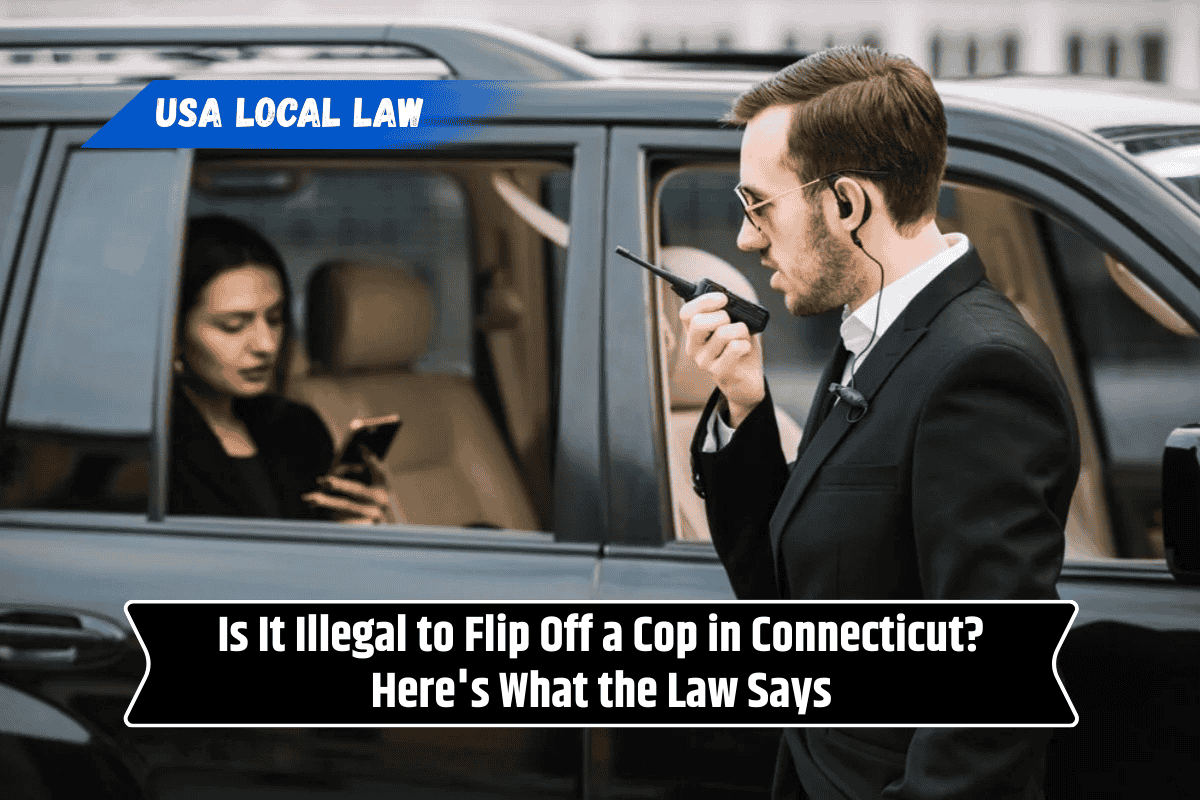Giving someone the middle finger, especially a police officer, might seem like a bad idea — but is it actually illegal in Connecticut? This is a question that often comes up when talking about free speech and the limits of public behaviour. Let’s break down what the law really says and whether flipping off a cop can land you in trouble.
Free Speech and the First Amendment
In the United States, freedom of speech is protected by the First Amendment of the Constitution. This protection includes speech that may be rude, disrespectful, or even offensive.
Courts have repeatedly ruled that giving someone the middle finger counts as free speech, even if it’s aimed at a public official like a police officer.
This means that, in most cases, flipping off a cop is not illegal — it is considered a form of expression.
What Do the Courts Say?
There have been several court cases across the country where people were arrested or cited for flipping off the police — and many of them ended with the courts ruling in favour of the citizen.
For example:
In 2013, a federal appeals court ruled in Swartz v. Insogna that a New York man’s middle finger gesture to a police officer was protected speech.
Courts have consistently found that the gesture, while impolite, does not count as disorderly conduct, harassment, or any form of illegal action — unless it’s combined with real threats or physical behaviour.
What About Connecticut Law Specifically?
Connecticut follows federal law and court rulings. So, in general:
Flipping off a police officer is not a crime in Connecticut.
However, it must not be accompanied by threatening words or actions.
If you’re yelling, interfering with an arrest, or being physically aggressive, the police may find grounds to charge you — not for the gesture itself, but for your overall behaviour.
When It Could Become a Legal Issue
Although the gesture alone is legal, there are situations where your actions could still lead to trouble:
Disorderly Conduct: If your behaviour causes a scene or leads to public disruption.
Breach of Peace: If your actions are likely to provoke violence or disturb others.
Interfering with an Officer: If you’re stopping an officer from doing their job.
In short: it’s the context that matters, not just the gesture.
What Should You Do if You’re Stopped for It?
If a police officer confronts you for flipping them off:
Stay calm and avoid arguing or escalating the situation.
Politely state that you’re exercising your First Amendment rights.
Don’t resist or interfere with any legal process — even if you think you’re being unfairly targeted.
If you’re wrongly arrested or cited, you may have the right to take legal action later.
While flipping off a police officer in Connecticut might be rude or disrespectful, it is not illegal by itself. As long as you’re not making threats or causing a disturbance, the gesture is protected by your First Amendment rights.
Still, it’s always smart to think twice before making a move that could escalate tensions — even if the law is on your side.
